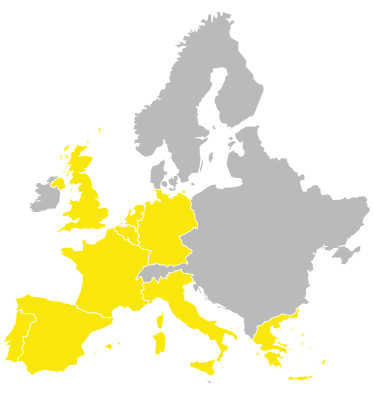Overview of the PLATIRUS project
The PLATIRUS project wanted to ensure a stable supply of platinum-group metals in Europe in order to comply with the European demand for PGMs. This is especially necessary because of the high demand for PGMs in autocatalysts, in which they are currently irreplaceable (but necessary due to strict automotive legislation). With the PLATIRUS process, a large amount of materials can be recovered from alternative secondary resources, such as autocatalysts, electronic waste and mining waste from nickel and copper smelters. This is expected to lead to an increase of 4 tonnes of PGMs per year, which potentially fully covers the European deficit. The PLATIRUS technology represents state-of-the-art technology, allowing a cost and energy reduction. The expected miniaturisation of the recovery process will also enable the wider proliferation of new PGM recovery facilities, and allow for decentralised locations on a smaller scale.
11 partners from 7 European countries, representing industry, research, and academic organisations, constituted the project consortium. The project started in November 2016 and lasted until April 2021. Funding was provided by the European Union’s Horizon 2020 research and innovation programme.
Objectives of the project
- Reduce the European deficit of PGMs by benchmarking, selecting and upscaling to industrial relevant levels a newly emerging cost-efficient and miniaturised PGMs recovery and raw material production process.
- Decouple the platinum demand of European industries from unstable, non-EU sources by setting up a new secondary PGMs exploitation route.
Our involvement in the project
PNO had several responsibilities within the PLATIRUS project:
- We ensured and maximised the impact of the project, paving the way for the market impact and uptake of the proposed technology.
- With a stakeholder analysis, we identified a relevant audience of stakeholders, policy makers, researchers and investors.
- We built a targeted set of communication and dissemination actions.
- We supported the project coordinator in market analyses and business planning.

